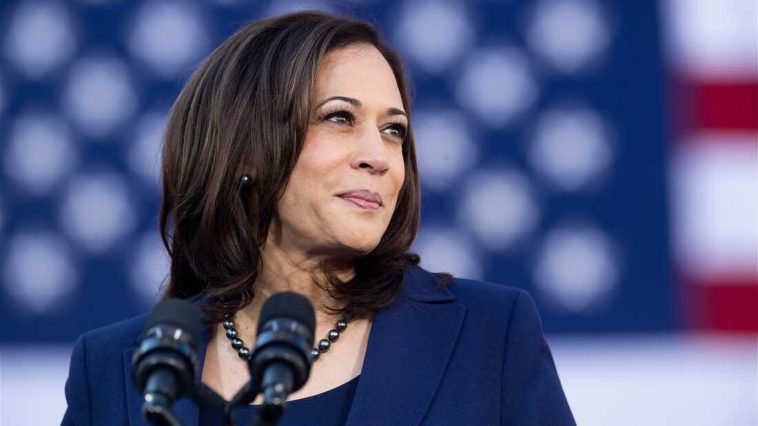In a recent editorial, prominent Washington Post columnist Kathleen Parker expressed her views that Vice President Kamala Harris should consider stepping down for the well-being of the nation. Despite her initial hopes of seeing the Vice President excel in her role, Parker, along with numerous others, couldn’t help but feel dissatisfied by Harris’ actual track record in the office.
Kathleen Parker’s core argument revolves around what she calls the ‘Kamala conundrum’. She posits that Harris was chosen primarily for her being both a woman and African American, two important elements in today’s political landscape. However, she suggests that this dual identity, originally a source of job security, now adds complexity to the situation, as she contends Harris has become a challenge for the Democratic ticket.
Parker’s thesis doesn’t end there. She raises concerns over President Biden’s advanced age and alleged cognitive decline, issues that worry a significant percentage of the American population. Her writing speaks to an underlying fear shared by many, about the preparedness and capacity of the existing line of succession in the face of any eventuality.
The gravity of this situation is not to be minimized, says Parker. Despite President Biden’s commendable State of the Union Address, his apparent physical vulnerability is a matter of ongoing public concern. Amplifying the situation yet further is a prevailing notion that the President is falling short of peak performance.
A recent poll conducted by New York Times supports Parker’s fears, showing that around 73% of registered voters feel that President Biden is too old to effectively lead the country. It’s worth noting that this viewpoint even resonates with 61% of those who cast their vote for him in the previous presidential election.
The penultimate point in Parker’s argument relates to Vice President Harris’ performance in the approval ratings. Harris consistently scores among the lowest in these ratings, even compared to predecessors in the office. Such statistics trigger concern over the potential continuity issues within the Democratic party, should anything happen to President Biden.
Parker suggests that Harris’ low performance in approval polls could well carry over even if she were to ascend to the presidency. In other words, a mere step up in position is unlikely to cause a reflective surge in her popularity. Simply put, if the present situation holds steady, Harris stepping into the President’s shoes would not necessarily translate to a dramatic shift in public sentiment.
Parker concludes her argument by asserting that it may be in the nation’s interest, or perhaps more accurately, in the interest of the Democratic Party’s prospects in the 2024 elections, for Vice President Harris to voluntarily step down. Parker does not delve into potential alternatives or suggest who should replace Harris, but her call for change is clear.
While it’s noteworthy that Parker does not directly reference concerns of many conservatives, the underlying points certainly resonate with that demographic. Issues such as the perceived inadequacies of leadership, and worries surrounding succession and age, are shared concerns across the political spectrum.
With that said, it is important to emphasize that Parker’s article stops shy of suggesting an apparent need to reform or overhaul the political system. Rather, she is merely highlighting what she perceives as a pivotal matter of concern for the nation’s leadership.
The idea of a Vice President stepping down for the sake of their party may seem radical to some, but Parker provides a compelling argument that such a change could be beneficial for the country. Whether this involves replacing Harris with a candidate who could perform better, or simply propelling a pivot in the administration’s direction, remains an open-ended question.
It’s important to remember that political commentary such as what Parker offers can shed light on concerns shared by broad swathes of the American citizenry. Such discussions—while opinionated—can deepen understanding of the challenges and choices facing the nation, ultimately leading to more informed public dialogue.
Parker’s call for change at the top echelons of the U.S. leadership has implications beyond elections and political maneuvering. It echoes a broader sentiment regarding the appropriateness of a Vice President ascending to the presidency based purely on circumstances rather than taking into consideration approval ratings or political competence.
Ultimately, the evaluation of any political figure’s performance should not merely depend on their demographic attributes or the expectations set upon them due to these attributes. This perhaps, is the most profound takeaway from Parker’s article, reviving the age-old debate about qualifications, suitability, and the dynamics of representation in our political systems.
Regardless of one’s political affiliations, the health of the nation’s leadership—a contentious subject involving questions of age, capability, and continuity, is a vital topic of discussion. Parker’s reflection raises the flag on these issues, catalyzing an important debate that needs to be taken up by individuals from all strata of the political spectrum.



